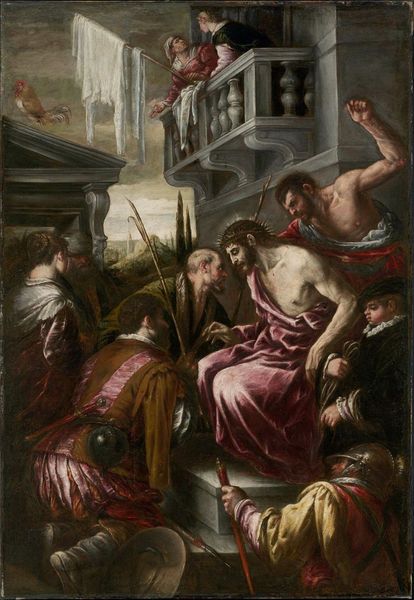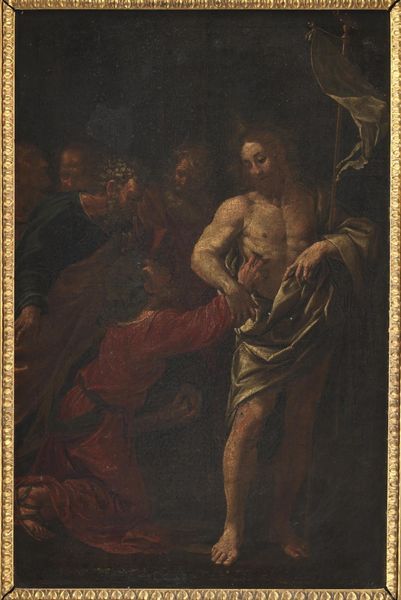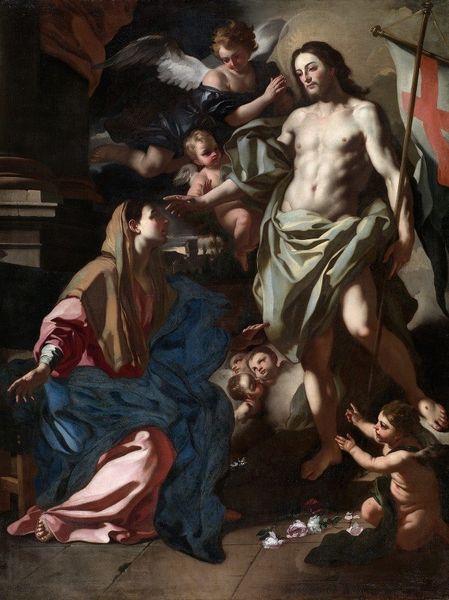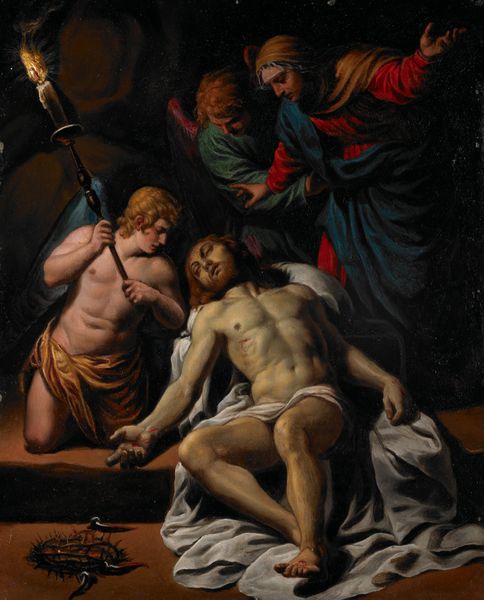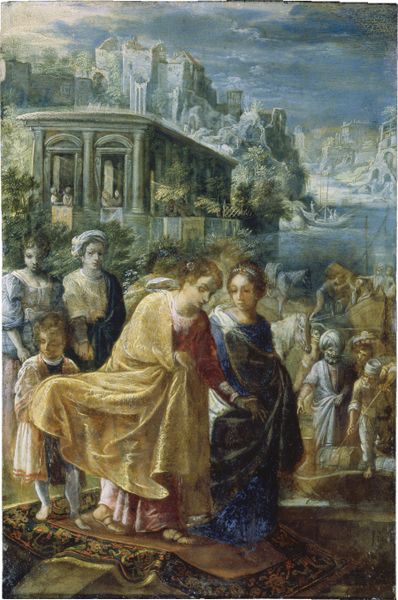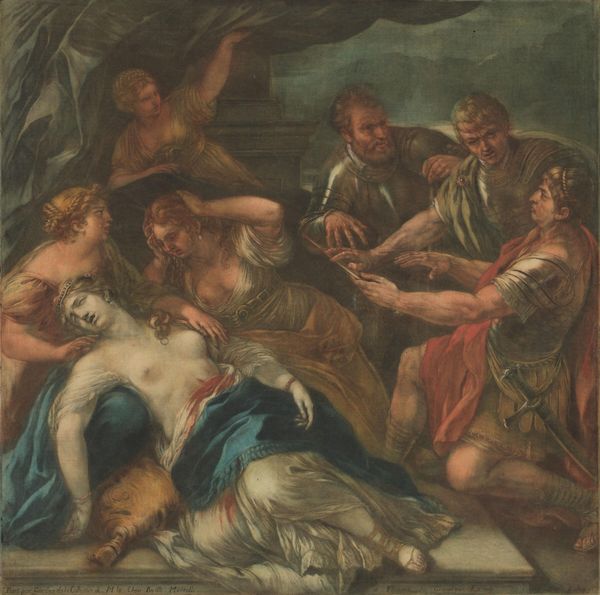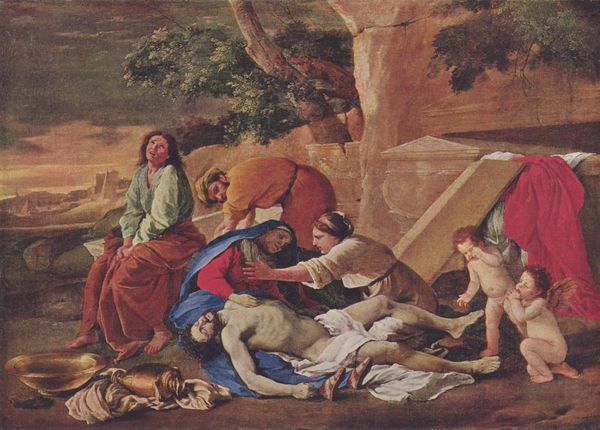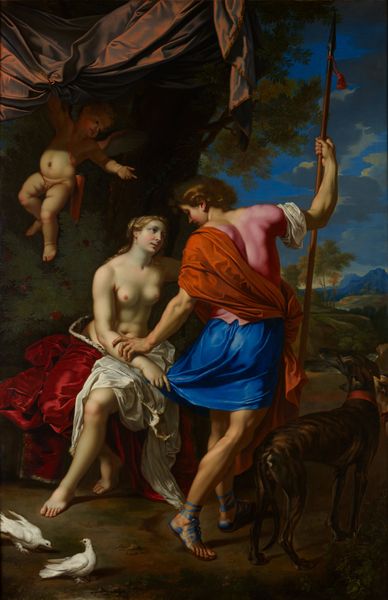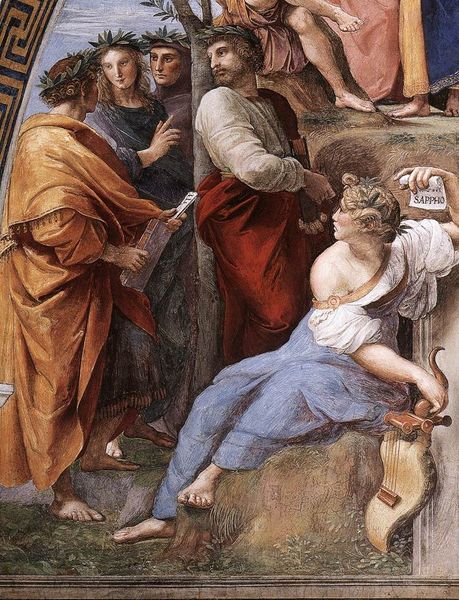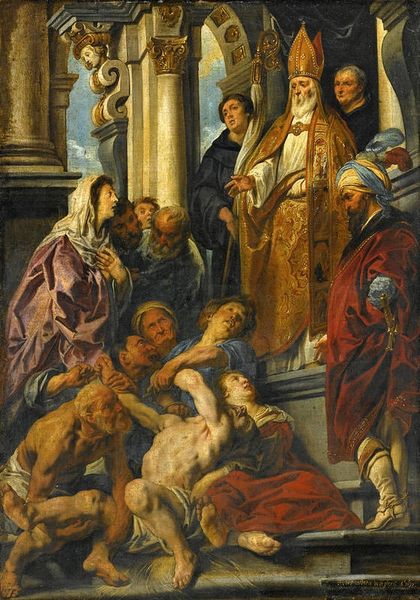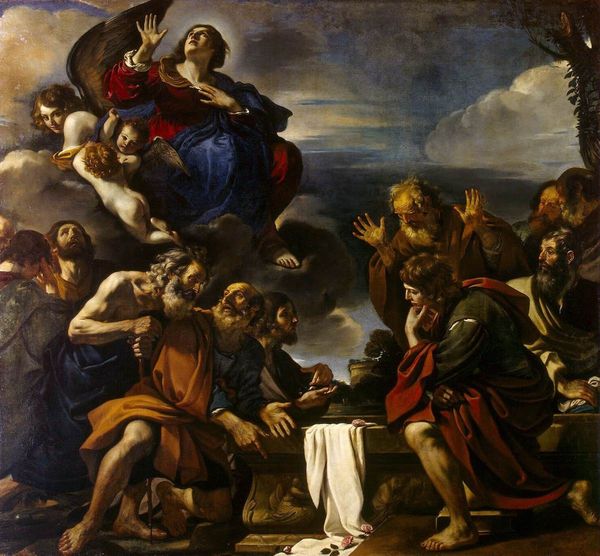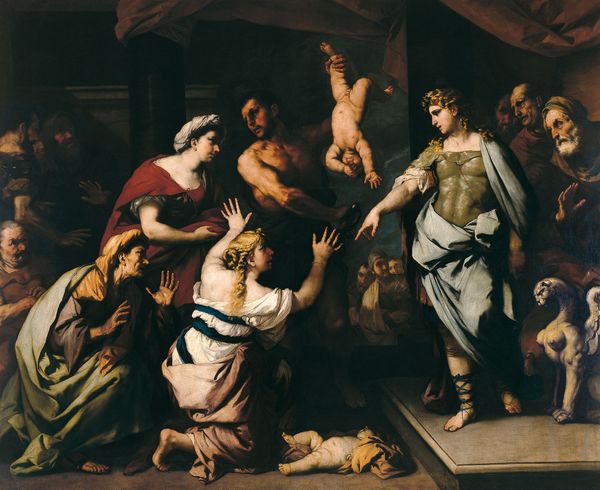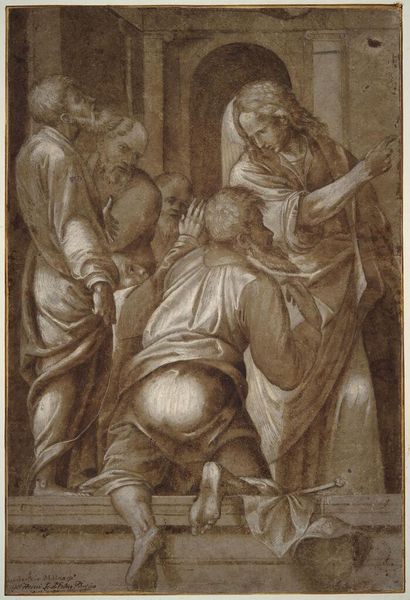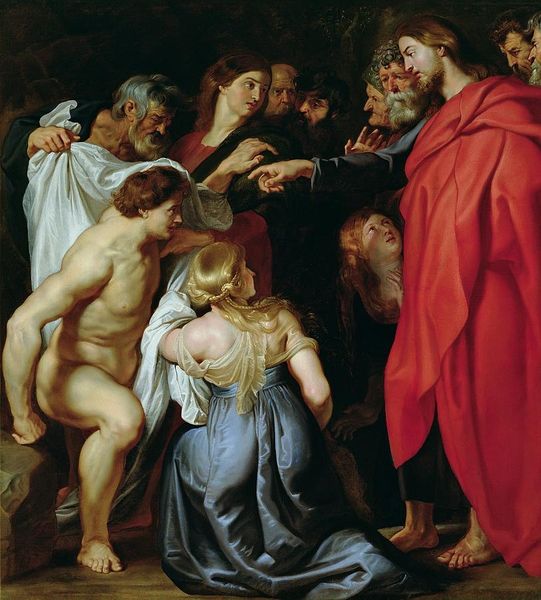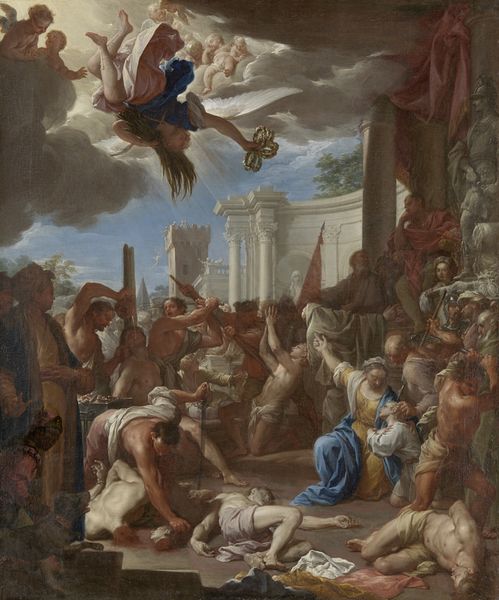
painting, oil-paint
#
portrait
#
narrative-art
#
painting
#
oil-paint
#
mannerism
#
figuration
#
oil painting
#
history-painting
#
portrait art
Copyright: Public domain
Bartholomeus Spranger's "Ecce Homo" presents us with a tapestry of profound suffering, and a potent arrangement of symbols from the Passion. The crown of thorns is more than an instrument of torture; it is a cruel inversion of the laurel wreath of triumph, a motif stretching back to classical antiquity. This symbol of mockery is heavy with tragic irony, resonating with that deep-seated human capacity for cruelty. In the composition, the swooning Virgin Mary mirrors figures of grief found in ancient depictions of mourning, such as in Roman sarcophagi. This archetypal representation transcends its immediate religious context, tapping into a universal expression of sorrow and loss. Such gestures serve as powerful visual carriers of cultural memory. The image engages us on a subconscious level; we are not merely witnessing a biblical scene but are viscerally drawn into the timeless drama of suffering and redemption. The narrative threads interweave, connecting ancient symbols with the unfolding drama of Christ's Passion.
Comments
No comments
Be the first to comment and join the conversation on the ultimate creative platform.
